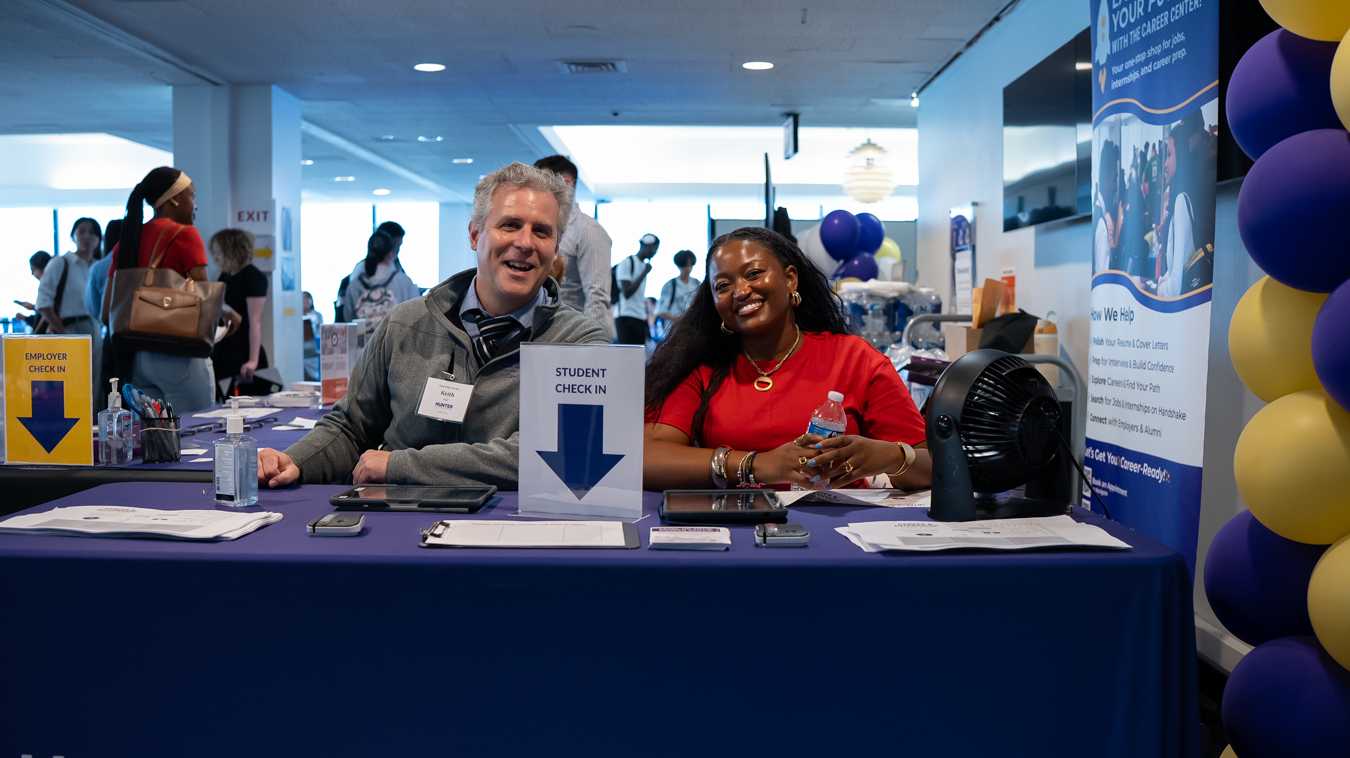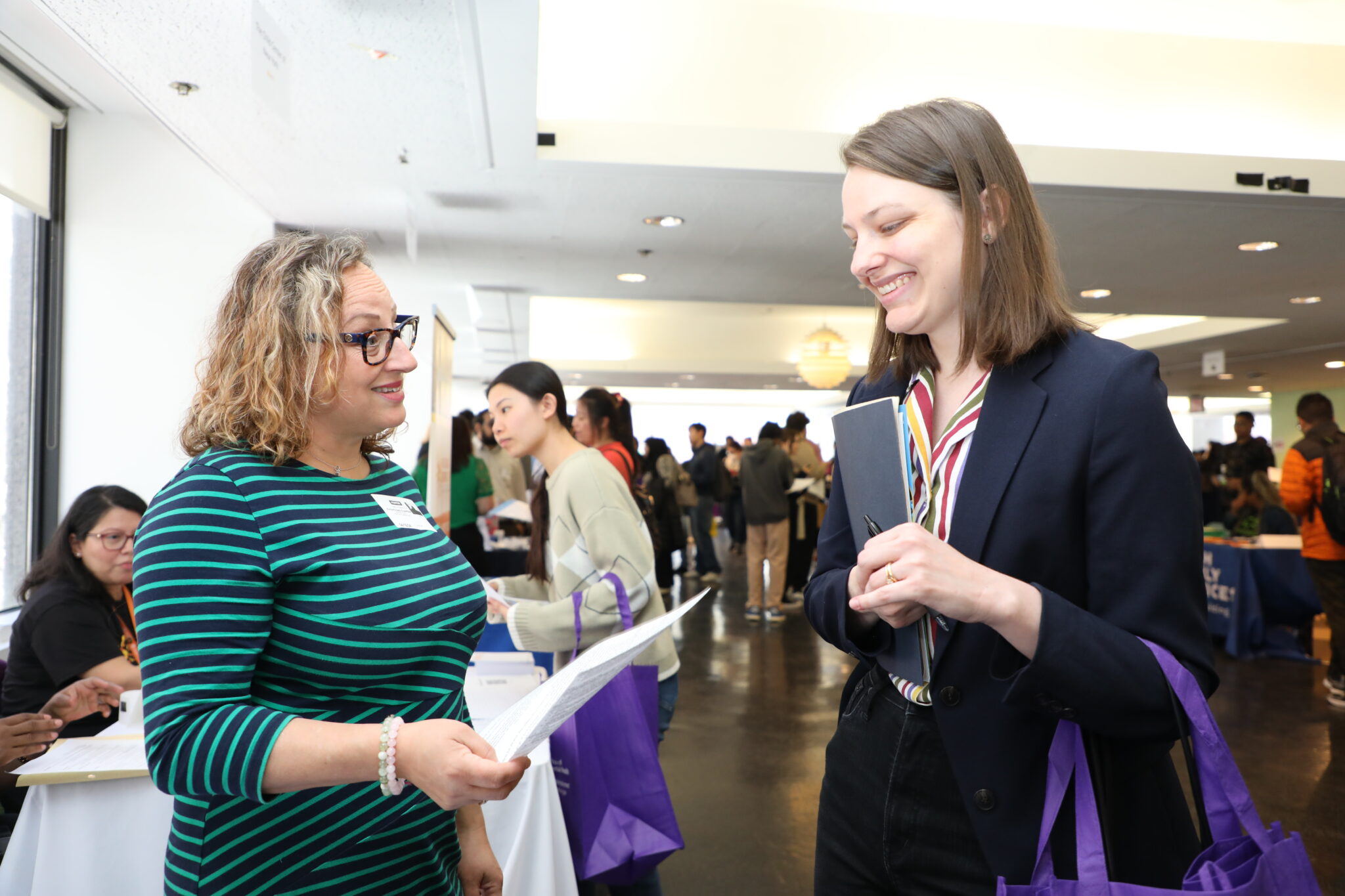This post was written by Guest Contributor Keith Okrosy, Associate Director of Career Education at Hunter College
Hunter students truly are amazing. They are smart, caring, and determined. But as strong as Hunter students are, they often lack the confidence to show employers they have what it takes to be a success. Integrating career readiness practices into the classroom can help elevate our students’ potential to be competitive applicants.
The Career Center has strong relationships with employer partners across a wide range of industries. We host fairs, panels, and information sessions that attract 1,000’s of students each year. Hunter students come to these events with enthusiasm, friendliness, and unique experiences. Yet consistently employers inform us that our students lack confidence, with many not clearly explaining their fit for opportunities.
This is not just a Hunter story either. The National Association of Colleges and Employers has found a wide gap between employers’ expectations and students’ proficiency in career ready competencies. For example, communication tops the list of expected competencies with 96% of employers surveyed indicating this to be an important skillset. Yet only 53% of surveyed employers believe new graduates are entering the workforce with proficiency.
Connecting classroom learning to professional workplace practices helps illustrate to students that engagement with their learning will help them build a foundation for success. Here are a few suggestions to consider incorporating into your classroom:
- Include Skills Statements: Explaining how assignments develop career readiness competencies provides students with clear language that they can use during interviews and in applications for employment opportunities.
- Invite Guest Speakers: Industry professionals, including alumni, can provide students with insight into how their college degree provides practical workplace skillsets. These visits can also help encourage networking and show students how tangible these professional roles can be.
- Collaborate with the Career Center: The Career Center can provide professional development support through class visits, resources, and one-on-one student guidance. Introducing students to the Career Center early and often will help reinforce the importance of strengthening these skills for continuing professional success.
This is by no means an exhaustive list, but hopefully these suggestions provide some ideas to help your students build their career readiness skills. Consider applying for one of the HunterWorks! initiatives listed below to develop practices you can incorporate into your classrooms and programs.
- Faculty Career Fellowships
Contact: Keith Okrosy (kokrosy@hunter.cuny.edu)
Chairs can nominate one faculty member from their department to serve as a Faculty Career Fellow. Over the course of the year, the Fellow will participate in a series of monthly meetings and workshops with the aim of supporting them in becoming the department’s resident expert in careers relating to their discipline. Each Fellow will receive a $4,000 stipend, with an option for a second year of continued support.
- Practitioners-in-Residence
Contact: Travis Fox (Travis.Fox@hunter.cuny.edu)
For Chairs who want to hire an active industry practitioner to teach a course within their department as an adjunct in the Spring semester, “HunterWorks” will cover the full salary of the industry adjunct as well as a $1,000 stipend for a faculty member within the department to serve as the practitioner’s Faculty Mentor.
- Student Internship Coordinators
Contact: Carolina Vargas (Carolina.Vargas@hunter.cuny.edu)
Chairs can nominate student leaders within their department who have previously completed an internship to serve as peer mentors – helping students navigate internship opportunities, career resources, and employer events in close coordination with the Career Center. Each Student Internship Coordinator will receive a $1,500 stipend for year ($750/semester).





Comments are closed.